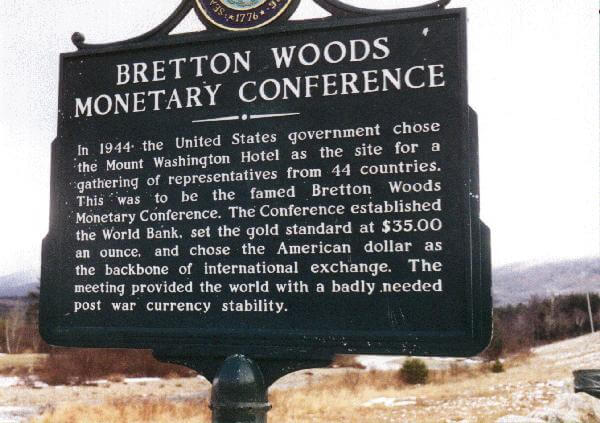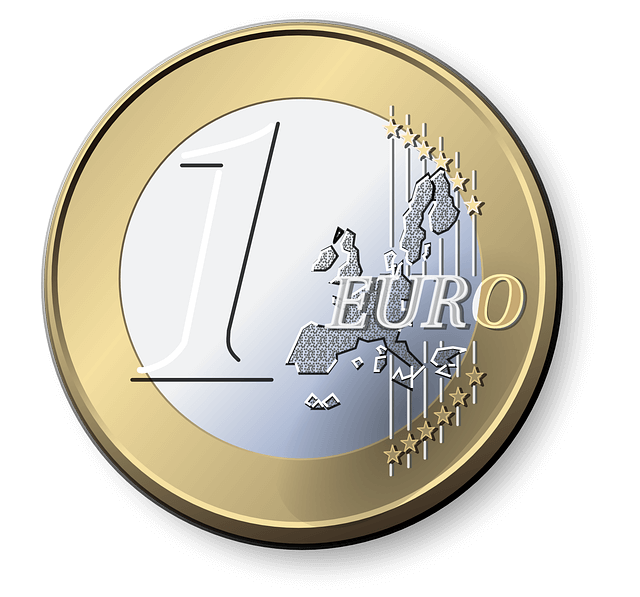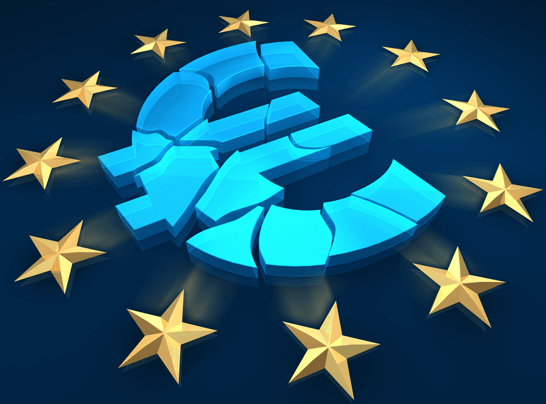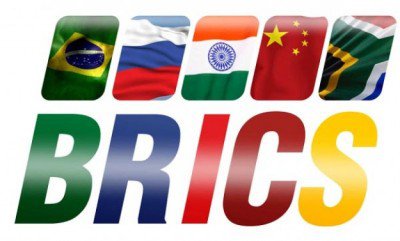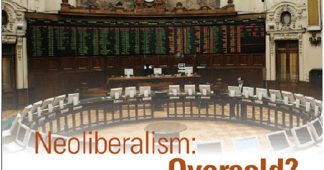John Maynard Keynes had the answer to the crisis we’re now facing; but it was blocked and then forgotten.
By George Monbiot. Published in the Guardian 18th November 2008
Poor old Lord Keynes. The world’s press has spent the past week blackening his name. Not intentionally: most of the dunderheads reporting the G20 summit which took place over the weekend really do believe that he proposed and founded the International Monetary Fund. It’s one of those stories that passes unchecked from one journalist to another.
The truth is more interesting. At the Bretton Woods conference in 1944, John Maynard Keynes put forward a much better idea. After it was thrown out, Geoffrey Crowther – then the editor of the Economist magazine – warned that “Lord Keynes was right … the world will bitterly regret the fact that his arguments were rejected.”(1) But the world does not regret it, for almost everyone – the Economist included – has forgotten what he proposed.
One of the reasons for financial crises is the imbalance of trade between nations. Countries accumulate debt partly as a result of sustaining a trade deficit. They can easily become trapped in a vicious spiral: the bigger their debt, the harder it is to generate a trade surplus. International debt wrecks people’s development, trashes the environment and threatens the global system with periodic crises.
As Keynes recognised, there is not much that the debtor nations can do. Only the countries which maintain a trade surplus have real agency, so it is they who must be obliged to change their policies. His solution was an ingenious system for persuading the creditor nations to spend their surplus money back into the economies of the debtor nations.
He proposed a global bank, which he called the International Clearing Union. The bank would issue its own currency – the bancor – which was exchangeable with national currencies at fixed rates of exchange. The bancor would become the unit of account between nations, which means it would be used to measure a country’s trade deficit or trade surplus(2,3,4).
Every country would have an overdraft facility in its bancor account at the International Clearing Union, equivalent to half the average value of its trade over the past five years. To make the system work, the members of the Union would need a powerful incentive to clear their bancor accounts by the end of the year: to end up with neither a trade deficit nor a trade surplus. But what would the incentive be?
Keynes proposed that any country racking up a large trade deficit (equating to more than half of its bancor overdraft allowance) would be charged interest on its account. It would also be obliged to reduce the value of its currency and to prevent the export of capital. But – and this was the key to his system – he insisted that the nations with a trade surplus would be subject to similar pressures. Any country with a bancor credit balance which was more than half the size of its overdraft facility would be charged interest, at 10%*. It would also be obliged to increase the value of its currency and to permit the export of capital. If by the end of the year its credit balance exceeded the total value of its permitted overdraft, the surplus would be confiscated. The nations with a surplus would have a powerful incentive to get rid of it. In doing so, they would automatically clear other nations’ deficits.
When Keynes began to explain his idea, in papers published in 1942 and 1943, it detonated in the minds of all who read it. The British economist Lionel Robbins reported that “it would be difficult to exaggerate the electrifying effect on thought throughout the whole relevant apparatus of government … nothing so imaginative and so ambitious had ever been discussed”(5). Economists all over the world saw that Keynes had cracked it. As the Allies prepared for the Bretton Woods conference, Britain adopted Keynes’s solution as its official negotiating position.
But there was one country – at the time the world’s biggest creditor – in which his proposal was less welcome. The head of the US delegation at Bretton Woods, Harry Dexter White, responded to Lord Keynes’s idea thus: “We have been perfectly adamant on that point. We have taken the position of absolutely no”(6). Instead he proposed an International Stabilisation Fund, which would place the entire burden of maintaining the balance of trade on the deficit nations. It would place no limits on the surplus that successful exporters could accumulate. He also suggested an International Bank for Reconstruction and Development, which would provide capital for economic reconstruction after the war. White, backed by the financial clout of the US Treasury, prevailed. The International Stabilisation Fund became the International Monetary Fund. The International Bank for Reconstruction and Development remains the principal lending arm of the World Bank.
The consequences, especially for the poorest indebted countries, have been catastrophic. Acting on behalf of the rich world, imposing conditions which no free country would tolerate, the IMF has bled them dry. As Joseph Stiglitz has shown, the Fund compounds existing economic crises and creates crises where none existed before. It has destabilised exchange rates, exacerbated balance of payments problems, forced countries into debt and recession, wrecked public services and destroyed the jobs and incomes of tens of millions of people(7).
The countries the Fund instructs must place the control of inflation ahead of other economic objectives; immediately remove their barriers to trade and the flow of capital; liberalise their banking systems; reduce government spending on everything except debt repayments; and privatise the assets which can be sold to foreign investors. These happen to be the policies which best suit predatory financial speculators(8). They have exacerbated almost every crisis the IMF has attempted to solve.
You might imagine that the United States, which since 1944 has turned from the world’s biggest creditor to the world’s biggest debtor, would have cause to regret the blinkered position it took at Bretton Woods. But Harry Dexter White ensured that the US could never lose. He awarded it special veto powers over any major decision made by the IMF or the World Bank, which means that it will never be subject to the Fund’s unwelcome demands. The IMF insists that the foreign exchange reserves maintained by other nations are held in the form of dollars. This is one of the reasons why the US economy doesn’t collapse, no matter how much debt it accumulates(9,10).
On Saturday the leaders of the G20 nations admitted that “the Bretton Woods Institutions must be comprehensively reformed.”(11) But the only concrete suggestions they made were that the IMF should be given more money and that poorer nations “should have greater voice and representation.” We’ve already seen what this means: a tiny increase in their voting power which does nothing to challenge the rich countries’ control of the Fund, let alone the US veto(12).
Is this the best they can do? No. As the global financial crisis deepens, the rich nations will be forced to recognise that their problems cannot be solved by tinkering with a system that is constitutionally destined to fail. But to understand why the world economy keeps running into trouble, they first need to understand what was lost in 1944.
www.monbiot.com
*Erratum: Professor Tony Thirlwall, an expert on this subject, writes to tell me that “The proposed interest rate on credit and debit balances was 1% if the balance was more than 25% of quota and a further 1% if the balance went above 50% of quota.”
References:
1. Geoffrey Crowther, quoted by Michael Rowbotham, 2000. Goodbye America! Globalisation, Debt and the Dollar Empire. Jon Carpenter, Charlbury, Oxon.
2. My sources are:
Michael Rowbotham, 2000, ibid;
3. Robert Skidelsky, 2000. John Maynard Keynes: Fighting for Britain 1937-1946. Macmillan, London;
4. Armand van Dormael, 1978. Bretton Woods: Birth of a Monetary System. Macmillan, London.
5. Lord Robbins, quoted by Armand van Dormael, ibid.
6. Harry Dexter White, quoted by Armand van Dormael, ibid.
7. Joseph Stiglitz, 2002. Globalization and its Discontents. Allen Lane, London.
8. ibid.
9. eg Romilly Greenhill and Ann Pettifor, April 2002. The United States as a HIPC (Highly Indebted Prosperous Country) – how the poor are financing the rich. Jubilee Research at the New Economics Foundation, London
and
10. Henry K Liu, April 11 2002. US Dollar hegemony has got to go. Asia Times.
11. The G20 Summit, 15th November 2008. Declaration of the Summit on Financial Markets and the World Economy. The White House. http://www.whitehouse.gov/news/releases/2008/11/20081115-1.html
12. See http://www.monbiot.com/archives/2006/09/05/still-the-rich-worlds-viceroy/
